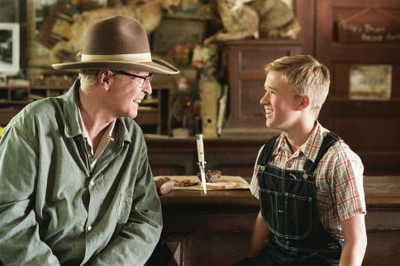When you hear the name, Haley Joel Osment, thoughts typically turn to a cherubic, fresh faced, yet fear-filled little boy who “see[s] dead people” in the streets of Philadelphia. Some may envision a smiling little boy named Forrest hopping on to a school bus as a doting father looks on, while others recall a young boy with a pet lion and all under the care of two “Secondhand Lions”. Although it may seem like it’s been a while since we’ve seen or heard from Haley Joel Osment, nothing could be further from the truth. Osment has been as busy as ever with various web series, voice work and school, and now, as a young adult in his mid-20’s, a plethora of new film projects. During what many perceived as an “out of sight” time period, “I was very busy in that time. It was just doing things that nobody would hear about. I was in New York doing theater and going to school and everything.”
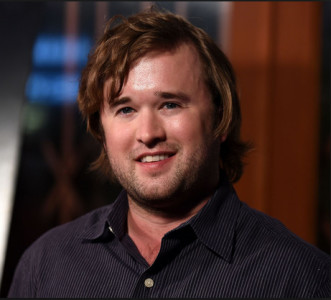
But now , Haley Joel Osment is very much back in the limelight. “ I’m really happy and excited at this point, because all of that was a run up to what’s going to be happening now. It’s sort of learning certain things off on my own that I wanted to add to what I had being lucky enough to work when I was younger. I’m grateful that people have been liking the work recently and everything and are accepting of it. “
Despite a meteoric rise to stardom as a child, Osment stayed grounded and focused, keeping his eye on the future and his education, particularly when as so often happens, childhood cuteness becomes teenaged unemployability. “College, certainly, made it impossible to be out here looking for films for the four years I was there. And an unexpected development was that I just discovered that New York was the place for me to live.” But it wasn’t all books and academia in college as Osment was heavily involved in theatre and film department. “That was a great period, again, to work with people my age in college and everything.” But on graduating, Osment fell right back into the constant hubbub of work he had as a child. “Once I graduated we had a couple really cool years come right out of the gate. Since the beginning of 2013, we’ve just had a really fun run of projects and everything. And interestingly, a lot of them have been revolving around comedy, which is sort of new for me, [although] ‘Forrest Gump’ aside, some of the first stuff I did as a kid was three or four years of network comedy, ‘Thunder Alley’ and all of that.”
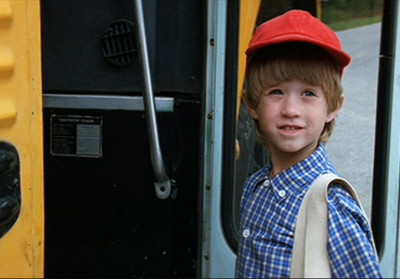
On being reminded that he also did comedy in a little show called “Murphy Brown”, Osment studiously notes, “It’s different when you’re a kid and a sitcom is different from a film.” Jumping ahead to the present and his career trajectory which now includes web comedies, shows like “Alpha House” and even films like “Sex Ed”, Kevin Smith’s deliciously irreverent “Tusk” or his upcoming “Yoga Hosers”, all of which feature Osment in key roles, “[W]ith these, it wasn’t so much stepping away from drama and studio films. It’s just a really good time for comedy right now. When I was in college, a lot of people were doing ‘UCB’ and starting there. Now, everybody has their web series. So, it was a time when people were really trying to generate a lot of comedy material and that was a world I became comfortable in. Something like “The Spoils of Babylon” wouldn’t have been made ten years ago. . .It’s just a time where people are willing to accept odder hybrids of comedy and everything. That’s really exciting for me.”
Adding theatre to his repertoire, one has to wonder if that “live connection” or “immediacy of reaction” has emboldened Osment’s skill set or make him now yearn for one performance medium over the other. When it comes to “Tusk” and the story genesis in podcasting, Osment is thoughtful, noting that with capturing the essence of podcast, theatre has proved an invaluable tool for “thinking on your feet” equating it to “making sure that your voice hits the back wall when you’re performing in a theater.” Expounding, Osment points out, “Theater, and having gone to college and studying theater, which was just a wonderful experience, theater acting and film acting just sort of inform each other. There’s things that you learn about detail. On a film set, the fact that you do a couple of takes to prepare yourself to hit it that time on camera [is one side of the coin], whereas, in theater, you have to sustain emotion over many performances over many hours on the night, and for weeks or maybe months. It stretches you out in really fun ways and it can sometimes even be hard to predict which tools from each will suddenly become useful. One thing I noticed on [“Tusk”] was the importance of physicality which you learn in theater. Your whole body’s always important, but in theater, it’s always visible to everyone and in this one, I’m always finding detail in that. Even our action chases and everything, it’s important to be mindful of the character’s physicality.”
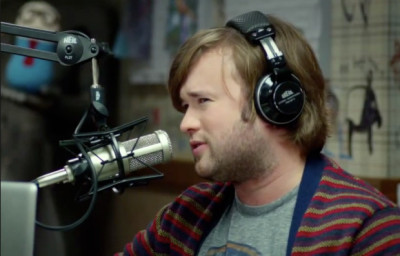
It’s obvious just in listening to the timbre and tenor of his voice as he speaks about it, that “Tusk” is a film he not only thoroughly enjoyed being a part of, but holds dear, especially when talking about his character of “Teddy” and his relationship with the character portrayed by Genesis Rodriguez. “Teddy’s a kind of a stoner [laughing]. There’s this funny dynamic where he steps in and becomes Genesis’ guy, but he’s too afraid to fly, too afraid to hold or fire a gun. He was, initially, supposed to be unable to drive, but it turned out Genesis couldn’t drive the set car, so I had to drive that one out of necessity. It’s this kind of guy who’s the counterbalance to Justin Long’s character and has more heart and everything, but isn’t completely sure of himself. And he’s thrust in sort of this high-stakes situation where has to sort of pull it together and be brave.” The character development for Teddy “starts with that podcast.” But then, “sometimes, just the clothes they give you helps. They give you this stupid sweater with little rings on it and everything that seems like guys who hang out in their garage and smoke weed every day all day. . .There is this turn where they get plucked from this comfort zone and thrust into this sort of frightening scenario. That was a lot of fun to do.”
While many may be surprised at the extensive literary references, texture and profound subtext running through “Tusk”, Osment was not. “I was really happy to see that. Kevin always has something to say. . . I just loved how focused it was. . .Things just all got layered on top of each other and has this really cool structure where we start off with the podcast, which is where what generated the idea for the movie. And we contrast that with someone of Michael Parks’ generation where it’s all old-world tradition and storytelling. The podcast doesn’t even really make sense to him. That’s sort of integrated into the sort of morality of what Justin Long’s character does and the immediacy of what he does and how he exploits people to get famous and everything. It wasn’t surprising to me, because I know how smart Kevin is. I was really pleased that that was how the movie would be. . . Oddly enough, it was a walrus, but [Smith] found the right thing for what he wants to say! [laughing]”
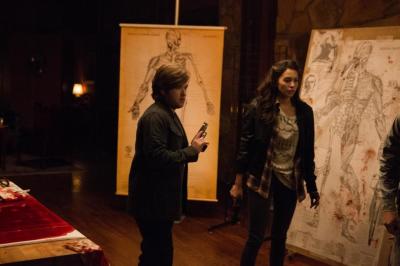
Given Haley Joel Osment’s legacy to date, and in light of “Tusk” and watching Justin Long be transformed into a walrus, one has to ask: What’s scarier or funnier? Seeing dead people or seeing Justin Long as a walrus? [laughing hysterically] “I guess it hits you on different levels. With ‘The Sixth Sense,’ it was more personal with people, because everyone has that thing of people died and things you want to say to them or something. With Justin, the walrus is sort of a visceral ‘Ughh’ sort of thing. And it’s such a perfect choice of animal, because if you turn him into a chicken or a lion or something, it wouldn’t have the same [effect]. There’s just a grossness to it! This animal that has certain anatomical similarities to a human being, but is not. It’s more of a nauseating thing, whereas ‘The Sixth Sense’ was spiritually upsetting.”
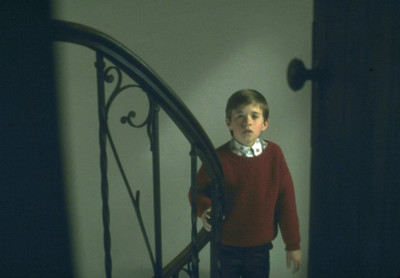
Reflecting back to his first reading of “Tusk” complete with reading about the walrus transformation and on to discovering a petrified walrus penis hanging on a wall, the ridiculum and hilarity isn’t lost on Osment. “I would compare that moment to the first scene. I think Kevin [Smith] and Quentin [Tarantino] are in the same world with what they think is funny and the excitement they get in making movies. That great scene in ‘Inglorious Basterds’ where they’re very serious and they have a long talk in France and then Christoph Waltz goes ‘Do you mind if I smoke?’ and he pulls out this stupid clown pipe? [In acting] there’s this thing where you go and you’re serious and they kinda throw this, ‘What about this? What about that?’ at you. Reading that in the [Tusk] screenplay, initially, that made me laugh and I sort of knew the thing that [Smith] was after, that you’d have this serious undertone, but never leave it completely.”
Finding that balance of drama or gravitas and humor in a script has great appeal to Osment. “Even in a movie like ‘Schindler’s List,’ Steven [Spielberg] has humor all over that movie. If you’re keeping people in this horrible, dark place for the whole movie, it’s impossible to get through. I would even say that in the worst situations, people do find humor. Most people do find levity. It’s not that you need a punch line in every joke in every movie, but I do say that movies that feel the most complete, from a cinema going experience, have those moments of humor. With Kevin [Smith], some of his intelligence, no matter what he’s dealing with, there’s something he’s going to find funny to pull out of it.”
Having worked with the cream of the crop in television and film from Robert Zemeckis to Steven Spielberg to M. Knight Shyamalan to Barnet Kellman, and with directing on his own horizon, Osment finds that “Each director really has their own way of running a set. I’ve been so lucky. I can’t think of a bad experience with a director, but they all have their own ways. As somebody who’s interested in doing that someday, you have a certain atmosphere you want on the set. You have a certain way of dealing with your actors. It’s not that does any one thing better than the other. It’s just that you can see how a director’s individual personality and artistic approach defines how a set runs. With Steven [Spielberg], it’s this epic scale of five stages running at once; the way he could manage the revolutionary CGI that they were doing at the time, but also think about the story and incorporating the Kubrick influence and what they had started there. It was amazing to see someone manage something that big. On a film like [‘Tusk’], it’s much smaller. There’s a little bit more detail and we’re pulling it apart and all these long takes and everything. I feel lucky, as an actor, to have lived through both of those experiences and I know that many more are possible, too.”
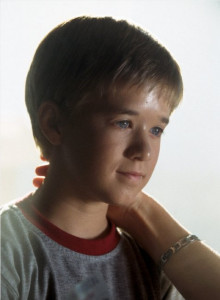
So just when will Haley Joel Osment make his movie behind the camera? “Unfortunately, some things in the film business are contracting. Less movies are being made in town than there used to be. Paradoxically, it’s also never been easier to get your act together, and if you have a small amount of money, and make something if you’re realistic about how many time jumps and CGI you can have, if you’re realistic about a budget, you can really get it done. So, for me, ever since college, there’s been things I’ve been interested in making. I just want to find the right time and circumstance. And what’s been nice is that I’ve been too busy in the last two years to get beyond just the drawing board.”
Now, as he sits here at the ripe old age of 26, with an eclectic and successful body of work already to his credit, what is the greatest gift that acting has given Haley Joel Osment? “Experience. . .That was another thing about college. It wasn’t just about what you’re learning in class. Being that age and having a life where it’s not just in L.A working on film sets, where I had real things happen to me in a community of people that weren’t just trying to make movies and everything, that experience helps the acting. But from an early age, I got to go places and meet people that you’d be lucky to spend years trying to stitch all those things together. That’s the biggest thing I’m grateful for, because it just threw me into these situations that I wouldn’t have found myself in had it not been for this.”
